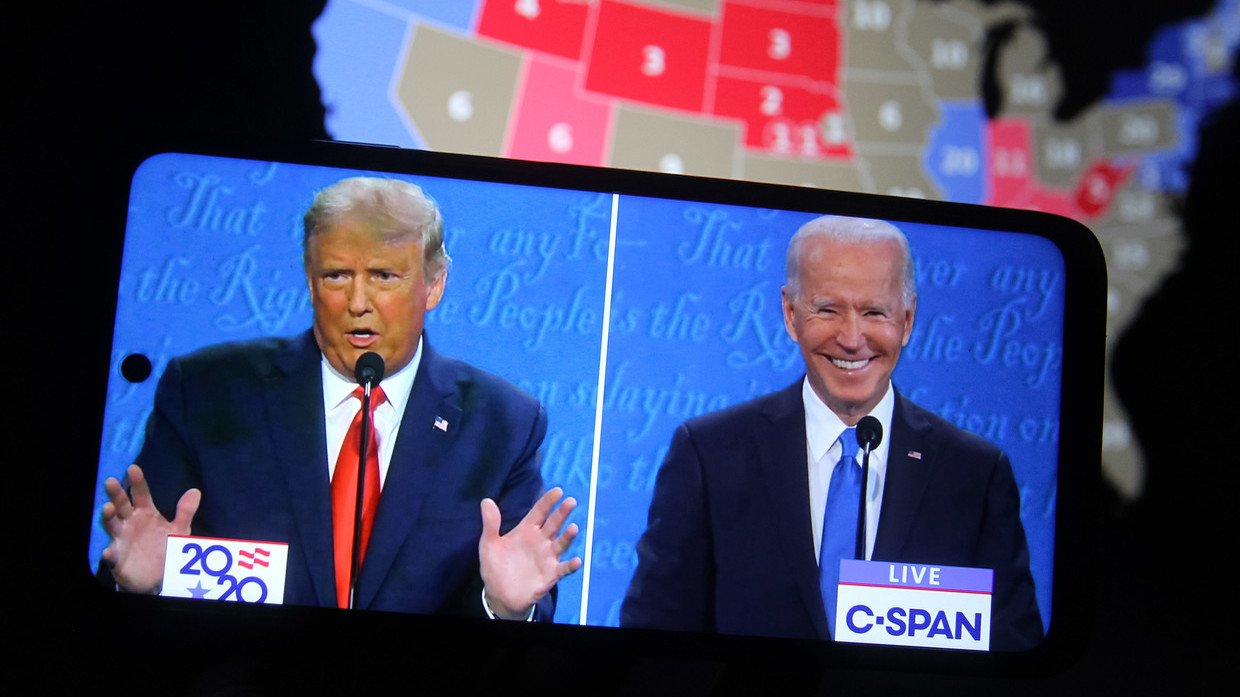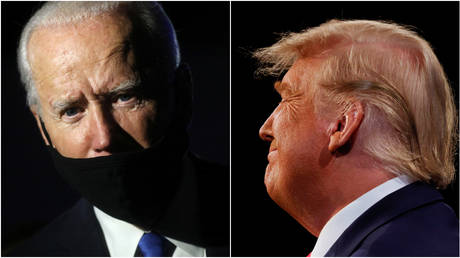With a little more than a week before the official US presidential election on November 3, the race between Joe Biden and President Donald Trump is both over and too close to call at the same time.
The reason for this is that while national polls show a huge lead for Biden, the fight for the electoral college vote in the critical swing states remains close. It is within this context that the second presidential debate, on October 22, took place.
The US presidential race is over in the sense that, as has been true for several months, the national polls put Biden in an approximately eight-point lead over Trump, with specific surveys placing the number of undecided voters between four and five points. There is no question that Biden will repeat Hillary Clinton’s 2016 performance and beat Trump in the national popular vote by at least 3,000,000 votes. Moreover, more than 48 million individuals have already cast their ballots. Given all this, there appeared to be fewer voters to persuade or move when the second debate occurred than at a similar time four years ago, when there were both far fewer early voters and more undecided voters. All this makes it look like it has already been decided.
The race is still close, however. Remember that the US presidential election is not decided by the popular vote, it is instead a contest to win the electoral college. It is a 50-state battle to get to the 270 electoral votes needed to win. With 48 of the 50 states awarding electoral votes on a winner-take-all system based on the popular vote within them, the race is effectively already over in 43 states. There are only seven states that really still matter and will decide who the next president will be. They are Arizona, Florida, Michigan, Ohio, North Carolina, Pennsylvania and Wisconsin. Here the competition is tighter, with Biden enjoying a slight lead in most of the swing states. In these states, the percentage of undecided voters is around five percent. Again, far less than was the case four years ago. Typically in the US, when undecided voters decide to vote they cast their ballots against the incumbent, as was true four years ago when Clinton effectively ran as the incumbent seeking to succeed Barack Obama as a third-term Democrat. None of this should be good news for Trump.
Yet, there is a political divide when it comes to voting in the US. Democrats are voting early and in strong numbers, at least based on the location where the votes are coming from. Trump has criticized early voting and we may yet see a heavy Republican turnout on election day that could give him a victory on November 3. There are also the probable legal and court challenges regarding early voting that might disqualify many early votes. The point being that while the numbers and odds favor Biden, it is still not over yet.
Also on rt.com United (Socialist) States of America? Trump-Biden showdown is a battle for the capitalist soul of the countryTrump needed the final debate to change the direction of the election. It did not do that. The president continued to speak to his political base, hoping to motivate them to vote in record numbers. He also needs Democrats to stay home and not vote like they did back in 2016. While this debate may have helped motivate his already activated supporters even more, there is little indication that he was able to convince Democrats – including the critical college-educated suburban women and African-American voters – to stay home. Biden kept the focus on Trump’s vulnerabilities such as the pandemic. Trump landed good punches with the issues of race and crime, but ultimately, it is doubtful that this final debate did much to change the course of the election. It is over in so many ways but also very close among the few voters in the few states that matter.
Think your friends would be interested? Share this story!
The statements, views and opinions expressed in this column are solely those of the author and do not necessarily represent those of RT.


